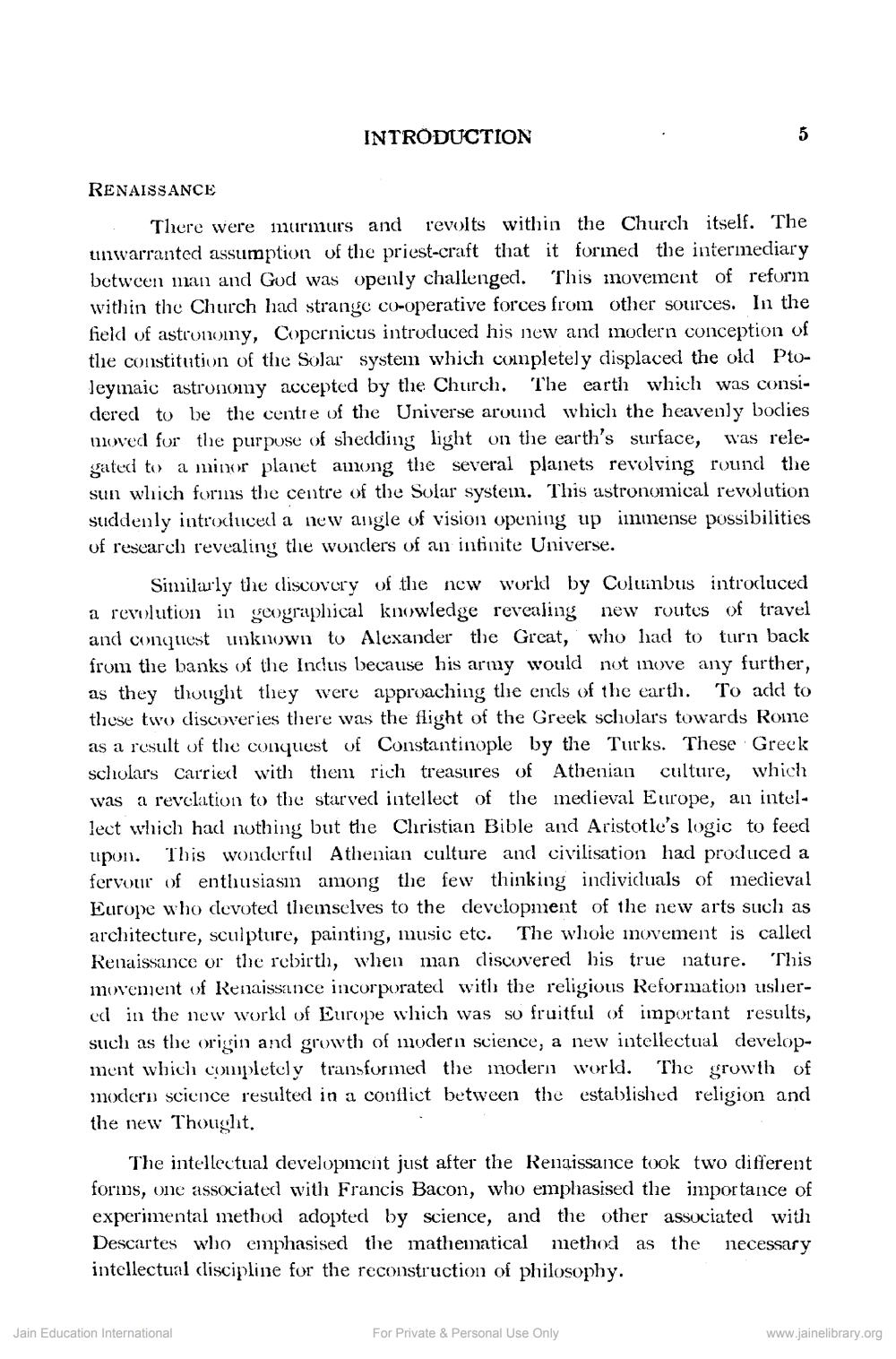________________
INTRODUCTION
RENAISSANCE
There were murmurs and revolts within the Church itself. The unwarranted assumption of the priest-craft that it forined the intermediary between man and God was openly challenged. This inovement of reforin within the Church had strange co-operative forces from other sources. In the field of astronomy, Copernicus introduced his new and modern conception of the constitution of the Solar system which completely displaced the old Ptoleymaic astronomy accepted by the Church. The earth which was considered to be the centre of the Universe around which the heavenly bodies moved for the purpose of shedding light on the earth's surface, was relegated to a minor planet among the several planets revolving round the sun which forins the centre of the Solar system. This astronomical revolution suddenly introduced a new angle of vision opening up immense possibilities of research revealing the wonders of an intinite Universe.
Similarly the discovery of the new world by Columbus introduced a revolution in geographical knowledge revealing new routes of travel and conquest unknown to Alexander the Great, who had to turn back from the banks of the Inclus because his army would not inove any further, as they thought they were approaching the ends of the earth. To add to these two discoveries there was the flight of the Greek scholars towards Rome as a result of the conquest of Constantinople by the Turks. These Greek scholar's carried with them rich treasures of Athenian culture, which was a revelation to the starved intellect of the medieval Europe, an intellect which had nothing but the Christian Bible and Aristotle's logic to feed upon. This wonderful Athenian culture and civilisation had produced a fervou of enthusiasm among the few thinking individuals of medieval Europe who devoted themselves to the development of the new arts such as architecture, sculpture, painting, music etc. The whole inovement is called Renaissance or the rebirth, when man discovered his true nature. This movement of Renaissance incorporated with the religious Reformation ushered in the new world of Europe which was so fruitful of important results, such as the origin and growth of modern science, a new intellectual development which completely transformed the modern world. The growth of modern science resulted in a conflict between the established religion and the new Thought.
The intellectual development just after the Renaissance took two different forms, one associated with Francis Bacon, who emphasised the importance of experimental method adopted by science, and the other associated with Descartes who emphasised the mathematical method as the necessary intellectual discipline for the reconstruction of philosophy.
Jain Education International
For Private & Personal Use Only
www.jainelibrary.org




